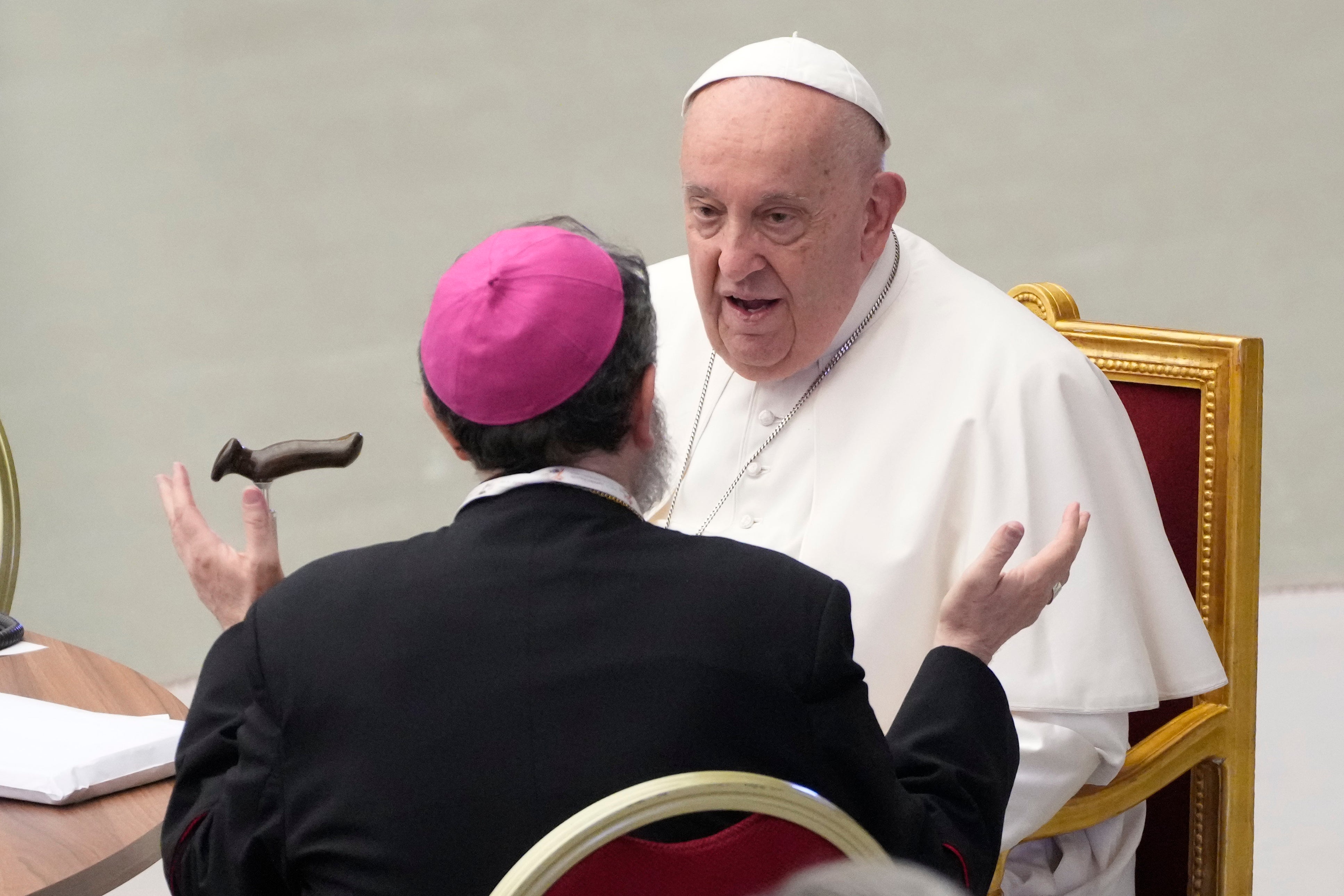Catholic church reform process expected to disappoint hopes of more equity for women
A yearslong process to reform the Catholic Church closes Saturday with recommendations that are expected to fall far short of hopes that women would be given more equity but reflect the pope’s aims for a church that at least listens more to its flock

Your support helps us to tell the story
From reproductive rights to climate change to Big Tech, The Independent is on the ground when the story is developing. Whether it's investigating the financials of Elon Musk's pro-Trump PAC or producing our latest documentary, 'The A Word', which shines a light on the American women fighting for reproductive rights, we know how important it is to parse out the facts from the messaging.
At such a critical moment in US history, we need reporters on the ground. Your donation allows us to keep sending journalists to speak to both sides of the story.
The Independent is trusted by Americans across the entire political spectrum. And unlike many other quality news outlets, we choose not to lock Americans out of our reporting and analysis with paywalls. We believe quality journalism should be available to everyone, paid for by those who can afford it.
Your support makes all the difference.A yearslong process to reform the Catholic Church closes Saturday with recommendations that are expected to fall far short of hopes that women would be given more equity but that reflect the pope’s aims for a church that at least listens more to its flock.
The Vatican’s top doctrinal officer, Cardinal Victor Manuel Fernandez, told the extraordinary assembly of bishops and laypeople this week that Pope Francis said the moment for allowing ordination of women as deacons in the church “is not ripe.”
The multi-year synod process had sparked great hopes for change, especially for women, who have long complained that they are treated as second-class citizens in the church. Women are barred from the priesthood and the highest ministerial positions in the Catholic Church, yet do the lion’s share of the work running Catholic hospitals and schools and passing the faith onto future generations.
Speaking to the synod on Thursday, Fernandez explained that a special working group would continue beyond the closing of the meeting, but that its focus would be on discussing the role of women in the church — not in the diaconate. He added that while working with women in previous pastoral roles, “most did not ask for or want the diaconate, which would be cumbersome for their lay work.”
He did not respond directly to a request to define what would determine “ripeness” for a greater role for women.
The outcome is shaping up to be a disappointment for Catholics who have been campaigning for recognition that women share a spiritual calling that is no different than a man’s. They also noted that despite the inclusion of women in the synodal process, the working group that is guiding discussions on women’s role is being run by the Roman curia, operating outside the synod.
“I think it is very clear that ordained men get to decide when the time is right, and they get to decide what baptismal equality amounts to. It is very frustrating, but they laid it all out,’’ said Kate McElwee, the executive director of the Women’s Ordination Conference.
The first phase of the synod process ended last year by concluding it was “urgent” to guarantee fuller participation by women in church governance positions, and calling for theological and pastoral research to continue about allowing women to be deacons.
Deacons perform many of the same functions as priests, such as presiding over baptisms, weddings and funerals, but they cannot celebrate Mass.
If before the synod the idea of allowing women to be deacons was a fringe proposal pushed by Western progressives, the idea gained attention during the debate. It became something of a litmus test of how far the church was going to go, or not, to address demands of women for greater equality and representation in the highest ranks of the church.
Francis, though, had other ideas, insisting that ordaining women would just “clericalize” them and that there were plenty of other ways to empower women in the church, even leading Catholic communities, without resorting to ordination.
Advocates say allowing women to be deacons would help offset the shortage of Catholic priests and address longstanding complaints about their second-class status.
Opponents say ordaining women to the deaconate would signal the start of a slippery slope toward ordaining women to the priesthood. The Catholic Church reserves the priesthood for men.
Francis has repeatedly reaffirmed the all-male priesthood and has sharply criticized “obtuse” agitators pressing for a female diaconate.